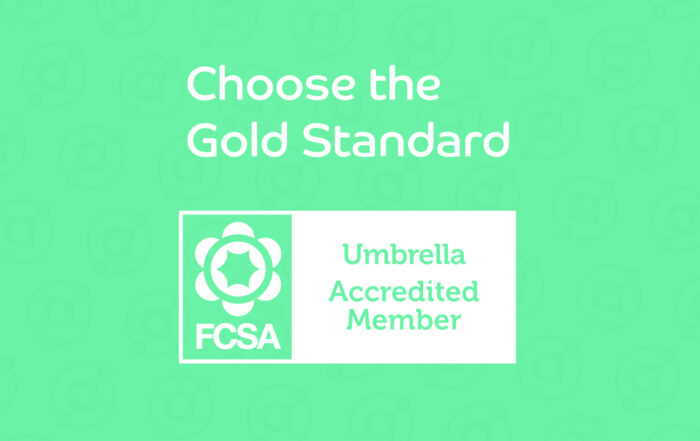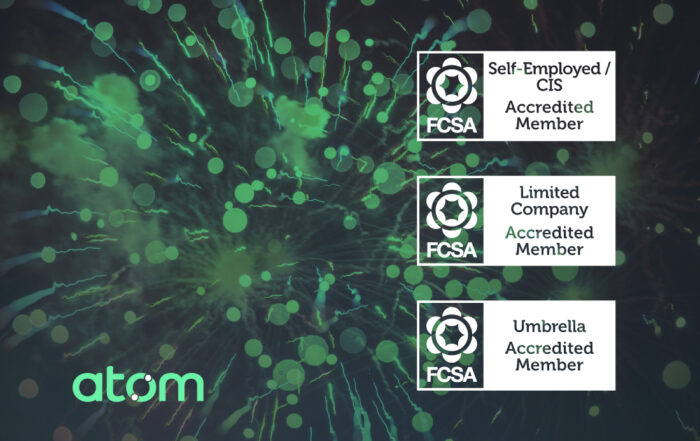IR35: Why Getting It Wrong Can Cost You More Than Money
If you work in recruitment or contract resourcing, IR35 isn’t just a piece of tax legislation — it’s a minefield.
Whether you’re placing contractors or running an umbrella/payroll solution, failing to get IR35 right can result in major financial penalties, reputational damage, and lost business.
So, what exactly is IR35? Why does it matter so much? And what are the real risks if your agency or end client gets it wrong?
Let’s break it down.
💼 What Is IR35?
IR35 — also known as the off-payroll working rules — was introduced by HMRC to crack down on “disguised employment”.
In short, it determines whether a contractor operating through a limited company (PSC) is truly self-employed, or if they should be classed as an employee for tax purposes.
If they should be an employee, but aren’t treated or taxed like one, you or your client could be liable for unpaid tax, National Insurance, interest, and penalties.
⚠️ What Happens If You Get It Wrong?
-
Financial Penalties
HMRC can backdate tax and NI liabilities for up to 6 years, plus apply penalties of up to 100% of the unpaid tax. That adds up very quickly. -
Damaged Reputation
For agencies and businesses, being involved in a non-compliant supply chain can damage your credibility with clients and contractors alike. -
Lost Clients or Candidates
Clients may pull contracts if they feel exposed, and contractors may walk if your arrangements put them at unnecessary tax risk. -
Audits & Investigations
Non-compliance can trigger deep-dive investigations by HMRC — not just into one contractor, but across your whole supply chain.
🧠 It’s Not Just About Status — It’s About Process
Many businesses think IR35 is only about the status determination (inside or outside). But how you arrive at that decision matters just as much.
You need:
-
A clear audit trail of assessments
-
Consistent, defensible determinations
-
A robust understanding of reasonable care
-
The right contract structure and working practices
✅ How AtomHub Helps You Stay Compliant
At AtomHub.co.uk, we help recruiters and businesses mitigate IR35 risks and navigate contractor compliance with confidence.
Our solutions include:
-
IR35 assessments and guidance using compliant tools
-
Transparent onboarding of contractors via PAYE, umbrella, CIS or EOR
-
Audit-ready documentation for every placement
-
Experienced compliance support to advise on tricky cases
We also partner with SafeRec.co.uk to offer real-time payslip audits and extra transparency across your contractor payments — giving agencies peace of mind and compliance that stands up to scrutiny.
📌 The Bottom Line
IR35 is not going away — and ignoring it won’t protect you.
If you place contractors or engage with supply chains that are even remotely exposed, it’s time to review your process, assess your risks, and get expert support.
Don’t let a compliance error derail your business.
Visit AtomHub.co.uk or get in touch with our team to make sure your agency, your contractors, and your clients are on the right side of IR35 — before HMRC knocks on the door.
IR35: Why Getting It Wrong Can Cost You More Than Money
If you work in recruitment or contract resourcing, IR35 isn’t just a piece of tax legislation — it’s a minefield.
Whether you’re placing contractors or running an umbrella/payroll solution, failing to get IR35 right can result in major financial penalties, reputational damage, and lost business.
So, what exactly is IR35? Why does it matter so much? And what are the real risks if your agency or end client gets it wrong?
Let’s break it down.
💼 What Is IR35?
IR35 — also known as the off-payroll working rules — was introduced by HMRC to crack down on “disguised employment”.
In short, it determines whether a contractor operating through a limited company (PSC) is truly self-employed, or if they should be classed as an employee for tax purposes.
If they should be an employee, but aren’t treated or taxed like one, you or your client could be liable for unpaid tax, National Insurance, interest, and penalties.
⚠️ What Happens If You Get It Wrong?
-
Financial Penalties
HMRC can backdate tax and NI liabilities for up to 6 years, plus apply penalties of up to 100% of the unpaid tax. That adds up very quickly. -
Damaged Reputation
For agencies and businesses, being involved in a non-compliant supply chain can damage your credibility with clients and contractors alike. -
Lost Clients or Candidates
Clients may pull contracts if they feel exposed, and contractors may walk if your arrangements put them at unnecessary tax risk. -
Audits & Investigations
Non-compliance can trigger deep-dive investigations by HMRC — not just into one contractor, but across your whole supply chain.
🧠 It’s Not Just About Status — It’s About Process
Many businesses think IR35 is only about the status determination (inside or outside). But how you arrive at that decision matters just as much.
You need:
-
A clear audit trail of assessments
-
Consistent, defensible determinations
-
A robust understanding of reasonable care
-
The right contract structure and working practices
✅ How AtomHub Helps You Stay Compliant
At AtomHub.co.uk, we help recruiters and businesses mitigate IR35 risks and navigate contractor compliance with confidence.
Our solutions include:
-
IR35 assessments and guidance using compliant tools
-
Transparent onboarding of contractors via PAYE, umbrella, CIS or EOR
-
Audit-ready documentation for every placement
-
Experienced compliance support to advise on tricky cases
We also partner with SafeRec.co.uk to offer real-time payslip audits and extra transparency across your contractor payments — giving agencies peace of mind and compliance that stands up to scrutiny.
📌 The Bottom Line
IR35 is not going away — and ignoring it won’t protect you.
If you place contractors or engage with supply chains that are even remotely exposed, it’s time to review your process, assess your risks, and get expert support.
Don’t let a compliance error derail your business.
Visit AtomHub.co.uk or get in touch with our team to make sure your agency, your contractors, and your clients are on the right side of IR35 — before HMRC knocks on the door.

Atom Accounting








